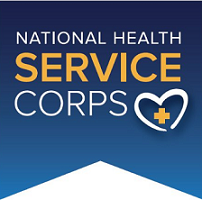When you are struggling and seem unable to find any “light at the end of the tunnel,” you may benefit from help by mental health care providers. These skilled professionals have the training and insight to help guide your journey to a healthier mind and outlook. When it comes to improving your mental health, it’s best to take the steps you need to maintain, or return to, a healthy perspective.
Mental health care often comes in the form of therapy or counseling with qualified professionals, such as a mental health counselor, who has your best interests in mind. But what exactly is counseling? If you’re interested in some form of mental health counseling and want to know more about what to expect, read on.
What Is Mental Health Counseling?
Mental health counseling is a process in which a licensed provider or mental health counselor works with an individual client or a group of clients to talk through issues, diagnose mental health disorders and provide guidance as clients work to improve their mental health. Mental health counselors typically have master’s degrees and several years of clinical experience working in the field before becoming licensed. This allows them to learn the ins and outs of their profession in order to provide the best service possible for their clients.
Mental health counseling services can take place in a variety of locations, including medical facilities, schools, private practices, prisons or hospitals. Some people also receive counseling online, meeting virtually with their counselor to talk through their concerns.
How Does Counseling Help Mental Health?
The connection between counseling and mental health is clear: regular counseling can improve mental health by helping clients pinpoint issues that cause mental health concerns, understand the feelings they are experiencing and learn the coping skills necessary to overcome issues and find personal growth. The American Psychological Association has found that talk therapy, which includes counseling, is effective in reducing the negative symptoms associated with mental illness.
Individual mental health counselors use different types of therapy with their clients. Several of the most common types that are proven effective in improving mental health, include the following:
- Cognitive-Behavioral Therapy
- Group Therapy
- Dialectical Behavioral Therapy
- Contingency Management Therapy
- Family Therapy
- Marriage Counseling
The type of therapy that is right for you may take a little trial and error. You may have to meet with a few counselors to find the right fit. Everyone is different and you may find that a specific style of counseling is not the right option for your individual needs.
What Are the Benefits of Counseling?
When you invest your time and energy in counseling and mental health services, you expect to get a payoff. There are several benefits that you can experience when you work with a mental health professional, including the following:
- An improvement in self-esteem and self-acceptance
- The ability to identify and change self-defeating behaviors
- Better communication with others
- New and improved interpersonal skills
- Higher levels of confidence
- Greater decision-making skills
- Decreased symptoms of anxiety, depressions and other mental health concerns
- Increased ability to manage stress
- Better emotional regulation
- Improved problem-solving skills
When you view counseling as a form of personal education, you’ll see how you can grow simply by participating in the process. Most people start out going to counseling because they are struggling in some way or another. As they continue to work with a mental health counselor, they may find a solution to their problems and personal growth in ways that go beyond what they were experiencing.
What Makes Mental Health Counseling Effective?
With these benefits in mind, you may wonder what it is about counseling that makes it effective. A good therapist is just part of the equation; there are several aspects about counseling that, when combined, help clients improve many different aspects of their lives. Those factors often include the following:
Processing Issues
Those attending counseling to work through past traumas or issues that have negatively impacted their well-being need time to process. Mental health counseling gives them an outlet to talk freely about whatever is bothering them, giving them opportunities for self-discovery and growth while a professional listens and supports.
Building a Relationship
A good relationship between a counselor and a client provides openness for the client to share and feel understood. Counseling is rarely effective when the client does not feel trust with his or her therapist.
Learning Coping Skills
Coping skills are beneficial for everyone, allowing us to learn to deal with challenging issues or difficult emotions. When clients learn how to cope from counseling, they have tools that they can utilize for a lifetime.
Changing Thought Patterns
In many cases of mental distress, negative thought patterns are at the root. Counseling, especially when cognitive-behavior therapy is utilized, allows clients to notice and change thought patterns that are harmful or destructive. Doing so gives the clients the ability to pay attention to how they are thinking and make adjustments when necessary for a more positive life experience.
Finding Diagnoses
Not knowing the cause of mental distress can make it very challenging to find relief. A diagnosis can give clients and counselors the understanding and language to talk about the issues at hand and create a treatment plan that is focused on recovery from a specific disorder.
Prescribing Medications
With a formal diagnosis, clients can begin taking medication as part of their treatment plans. Doing so is an important factor in the effectiveness of counseling, because some mental health disorders require the use of medications.
Is Mental Health Counseling Right for You?
Living with a mental health condition can be challenging without professional help. Mental health counseling can help those struggling with anxiety, depression, eating disorders, addictions or other conditions find relief and self-improvement. If you’re struggling, please reach out for help. Bear River Mental Health serves individuals and families in Box Elder, Rich and Cache Counties. Contact us today to find a professional counselor who can help you.
Q&A for "How Does Counseling Help Mental Health?"
Is therapy the same as counseling? What's the difference?
While often used interchangeably, there are subtle differences. Therapy is a broad term encompassing various treatment approaches for mental health concerns, while counseling is a specific type of therapy focused on talk therapy techniques like CBT and DBT. Both involve discussing issues with a qualified professional, but counseling might have a more conversational and supportive feel.
I'm hesitant to start therapy. Is it just for people with serious mental illnesses?
Absolutely not! Counseling benefits anyone seeking personal growth, navigating life challenges, or wanting to improve their mental well-being. It’s not solely for severe diagnoses but can help with everyday stressors, relationships, career decisions, and self-discovery.
What questions should I ask when choosing a mental health counselor?
When seeking your perfect fit, ask about their specialization, treatment methods, experience with your specific concerns, insurance acceptance, and overall approach. It’s important to feel comfortable and heard, so don’t hesitate to inquire about their communication style and personality.
I can't afford traditional therapy. Are there cheaper or free options?
Many affordable and even free counseling options exist! Consider community mental health centers, online therapy platforms, sliding scale payment options, or group therapy sessions. Additionally, your employer might offer employee assistance programs (EAPs) that cover therapy sessions.
Can online therapy be just as effective as in-person counseling?
Absolutely! Studies show online therapy can be equally effective for many individuals, especially those seeking support for anxiety, depression, and other common mental health concerns. It offers convenience, flexibility, and accessibility for those with busy schedules or transportation limitations.
What if I don't "click" with my first counselor? Is it okay to switch?
Finding the right fit is crucial! Don’t hesitate to try different counselors until you find someone who feels compatible and understanding. It’s a personal journey, and your comfort and connection with your therapist matter greatly for successful progress.




